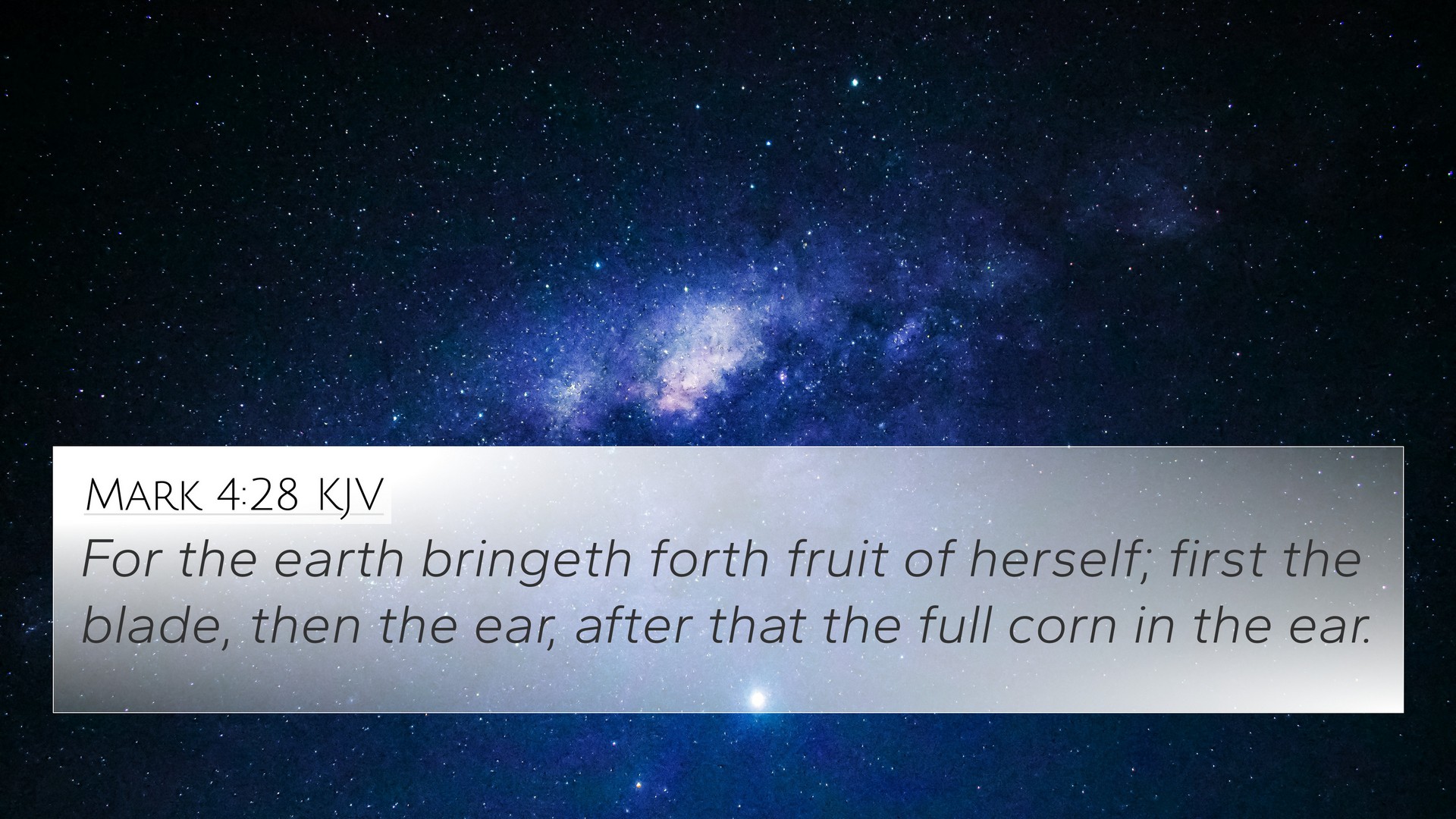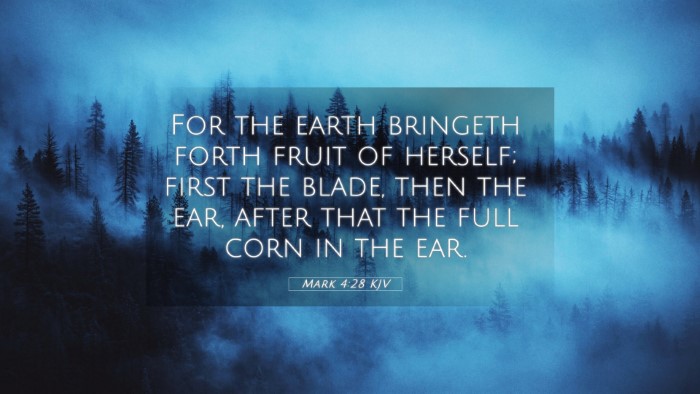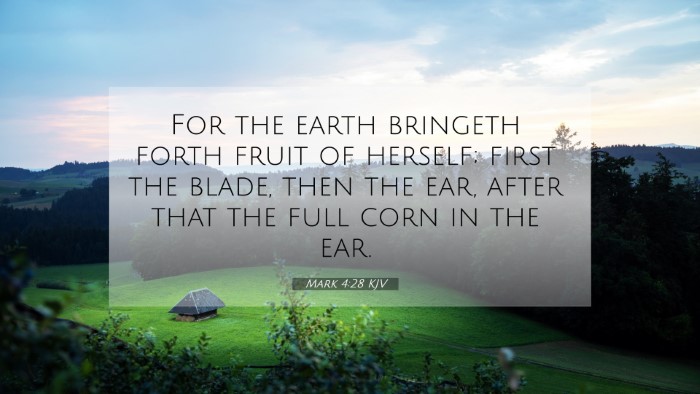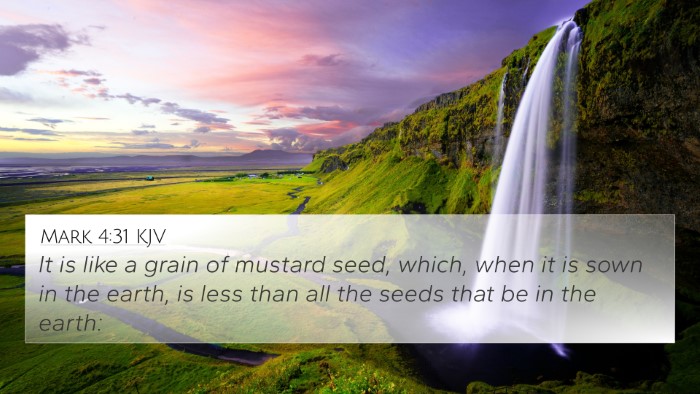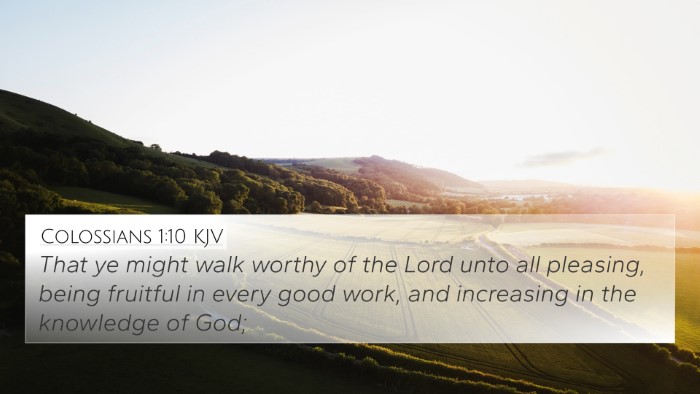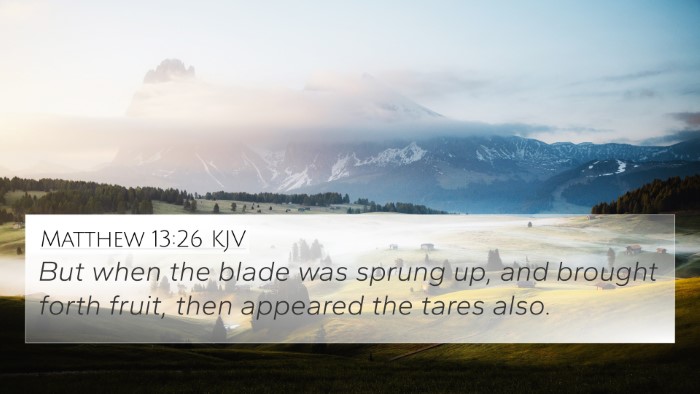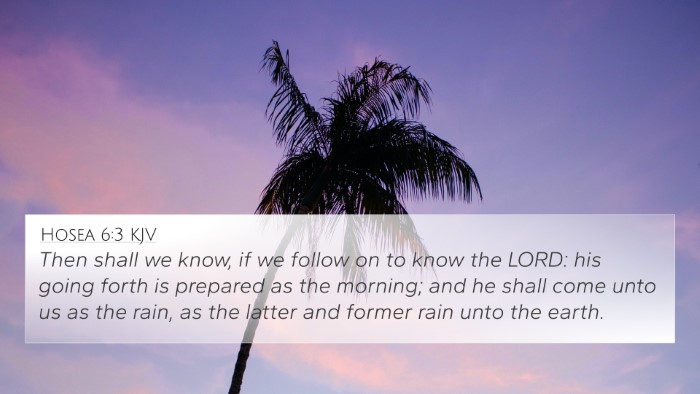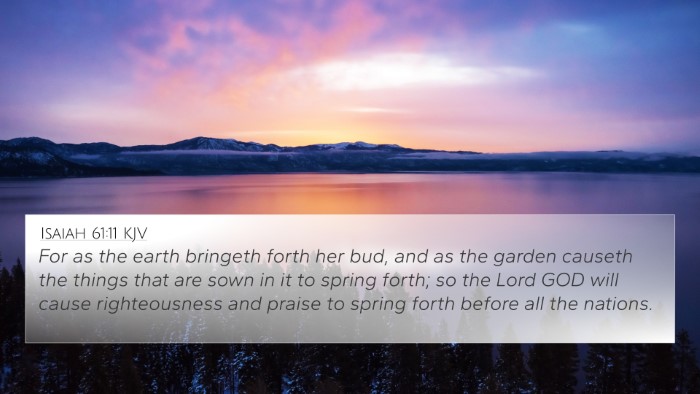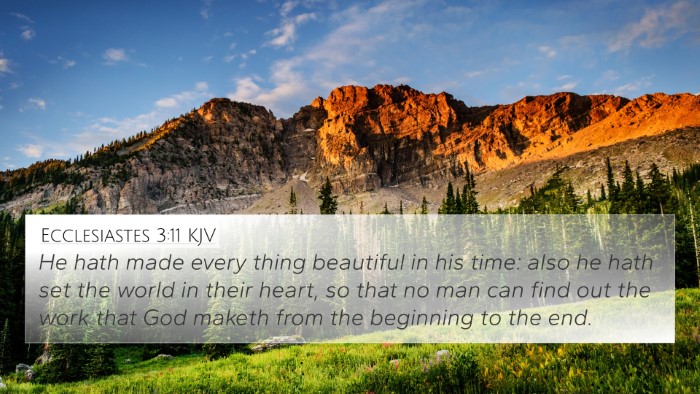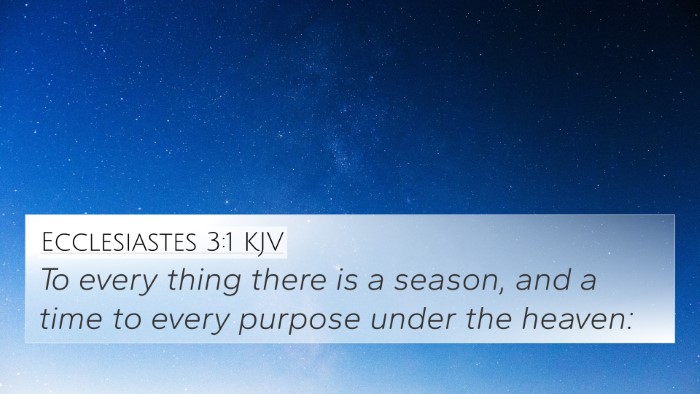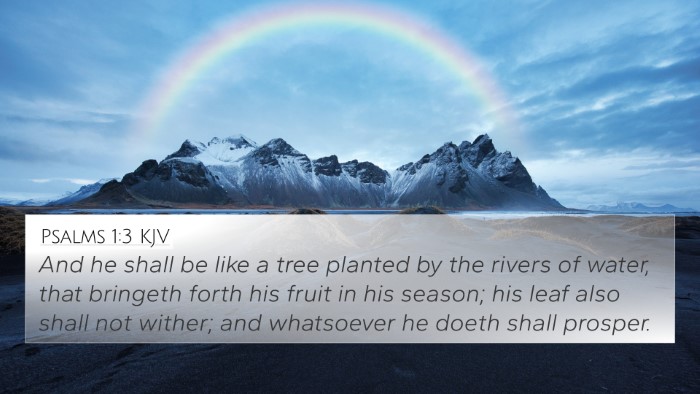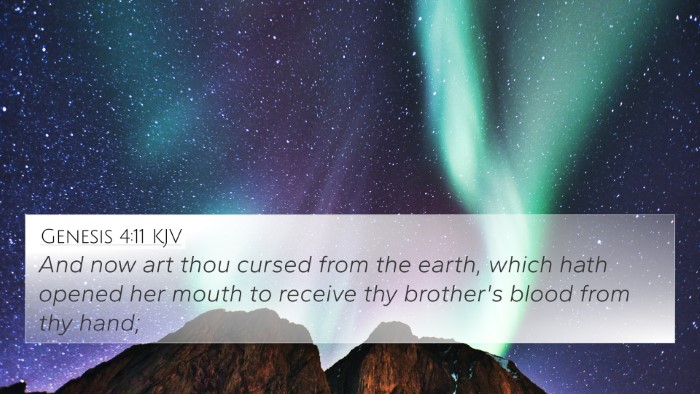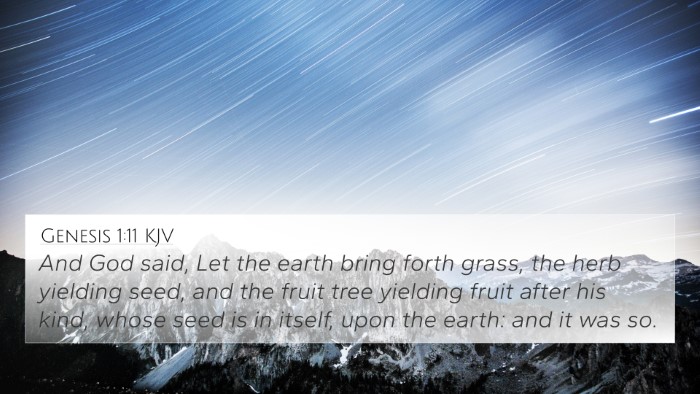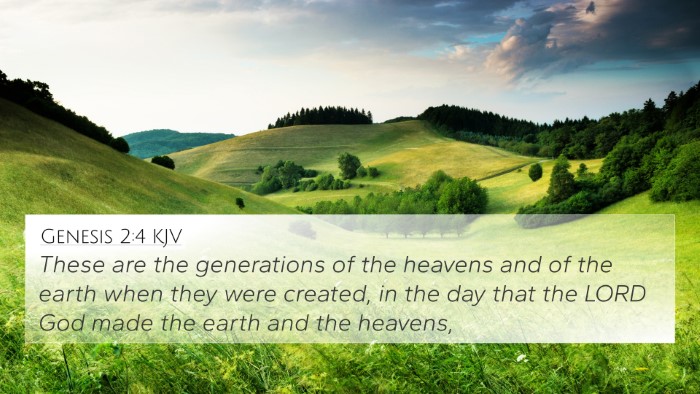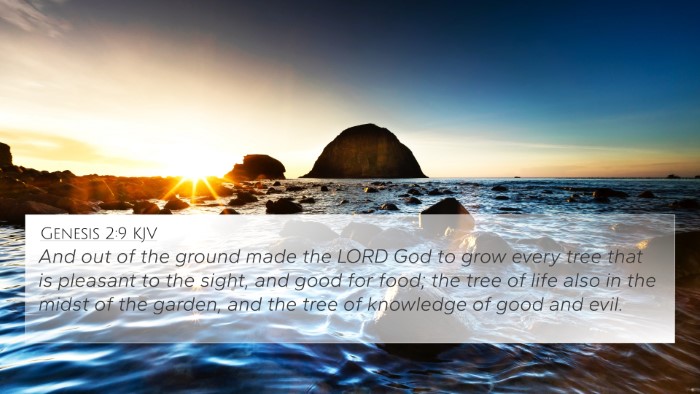Understanding Mark 4:28
Mark 4:28 states: "For the earth brings forth fruit of herself; first the blade, then the ear, after that the full corn in the ear." This verse captures the process of growth in nature as a metaphor for the Kingdom of God and the spiritual development of individuals. Below is a comprehensive interpretation based on comments from esteemed commentaries.
Commentary Insights
Matthew Henry explains that this verse illustrates how the process of spiritual growth is often gradual and progressive. Just as a seed develops into a full grain in stages, so too does the Word of God grow in the hearts of believers. One must be patient, as each stage is necessary for the completion of the harvest.
According to Albert Barnes, the mention of "first the blade, then the ear" serves as a reminder that growth takes time and must occur in an orderly fashion. There is a divine plan at work, and humans are encouraged to trust in the Lord's timing. The metaphor of agricultural growth is particularly poignant for a predominantly agrarian society.
Adam Clarke emphasizes that this verse reflects God's providence in both nature and grace. He notes that just as farmers can expect a harvest by following the natural order of sowing and reaping, believers can anticipate spiritual fruit in their lives through obedience and faith in the Word of God.
Bible Cross References
This verse connects with several other Scriptures that further illuminate its meaning:
- Matthew 13:23 - "But he who received seed on good ground is he who hears the word and understands it, who indeed bears fruit and produces: some a hundredfold, some sixty, some thirty."
- Galatians 6:7-9 - "Do not be deceived, God is not mocked; for whatever a man sows, that he will also reap. For he who sows to his flesh will of the flesh reap corruption, but he who sows to the Spirit will of the Spirit reap everlasting life."
- 1 Corinthians 3:6-7 - "I planted, Apollos watered, but God gave the increase. So then neither he who plants is anything, nor he who waters, but God who gives the increase."
- Hebrews 6:7-8 - "For the earth which drinks in the rain that often comes upon it, and bears herbs useful for those by whom it is cultivated, receives blessing from God; but if it bears thorns and weeds, it is rejected and near to being cursed, whose end is to be burned."
- James 5:7 - "Therefore be patient, brethren, until the coming of the Lord. See how the farmer waits for the precious fruit of the earth, waiting patiently for it until it receives the early and latter rain."
- Luke 8:15 - "But the ones that fell on the good ground are those who, having heard the word with a noble and good heart, keep it and bear fruit with patience."
- John 15:5 - "I am the vine; you are the branches. He who abides in Me, and I in him, bears much fruit; for without Me you can do nothing."
Thematic Bible Verse Connections
Observing the connections between these verses enriches our understanding of spiritual growth:
- Both Matthew 13:23 and Mark 4:28 highlight the importance of a receptive heart for producing spiritual fruit.
- Galatians 6:7-9 offers a poignant reminder of cause and effect—illustrating how our actions lead to corresponding spiritual rewards.
- 1 Corinthians 3:6-7 affirms that while humans play a role in planting and watering, it is ultimately God who brings about growth and fruition.
- Hebrews 6:7-8 uses agricultural imagery to emphasize the necessity of yielding good fruits in one's spiritual journey.
- James 5:7 encourages patience, drawing a parallel between the seasons of nature and the spiritual seasons in believers' lives.
- Luke 8:15 reinforces that it is not just hearing the Word but also keeping it that leads to fruitfulness.
- John 15:5 stresses the relationship believers must maintain with Christ to achieve spiritual vitality and productivity.
Conclusion
Mark 4:28 serves as a powerful reminder of the organic nature of spiritual growth and its dependence on God's timing and nurturing. Through the use of cross-referencing biblical texts, one can see the intricate themes of agriculture, patience, and divine providence woven throughout Scriptures.
Christian disciplines such as prayer, study, and fellowship function as essential tools for cultivating the soil of one’s heart, ensuring that the growth God ordains will take place. Understanding the interconnectedness of these passages allows believers to deepen their faith and bolster their trust in the divine process of growth.
